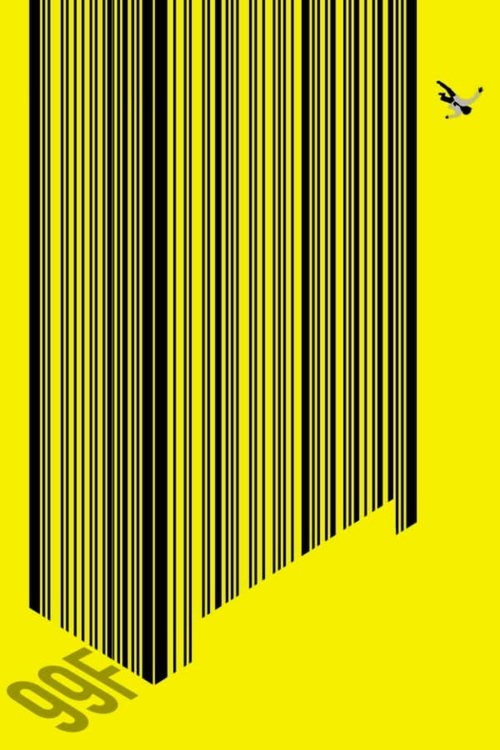
Title: 99 Francs
Year: 2007
Director: Jan Kounen
Writer: Nicolas Charlet
Cast: Jean Dujardin (Octave Parango),
Jocelyn Quivrin (Charlie Dagout),
Patrick Mille (Jeff Marolles),
Vahina Giocante (Sophie),
Elisa Tovati (Tamara),
Runtime: 105 min.
Synopsis: Paris, France, 2001. Octave Parango, a young advertiser working at the Ross & Witchcraft advertising agency, lives a suicidal existence, ruled by cynicism, irresponsibility and debauchery. The obstacles he will encounter in developing a campaign for a new yogurt brand will force him to face the meaning of his work and the way he manages his relationship with those who orbit around his egotistic lifestyle.
Rating: 6.622/10
The Frenzied Mirror: Reflecting Madness in *99 Francs*
/10
Posted on July 12, 2025
Directed by Jan Kounen, 99 Francs (2007) is a frenetic, visually audacious adaptation of Frédéric Beigbeder’s novel, plunging viewers into the chaotic psyche of Octave Parango, a self-loathing advertising executive played with manic intensity by Jean Dujardin. The film’s most striking element is its direction, a kaleidoscopic assault that mirrors the advertising world’s seductive yet hollow excess. Kounen employs rapid cuts, surreal interludes, and jarring stylistic shifts think Baz Luhrmann on an absinthe bender to immerse us in Octave’s unraveling mind. This approach, while occasionally overwhelming, captures the disorienting allure of consumerism with a precision that feels both exhilarating and suffocating.
The screenplay, co-written by Kounen and Beigbeder, is a sharp-edged satire, slicing through the superficiality of advertising with biting wit. Octave’s voice-over, dripping with cynicism, serves as both guide and unreliable narrator, exposing the industry’s manipulation while revealing his own complicity. Yet, the script falters in its final act, where the narrative’s descent into surreal chaos sacrifices emotional coherence for shock value. The critique of capitalism, though incisive, risks being overshadowed by its own indulgence, leaving some thematic threads unresolved.
Jean Dujardin’s performance is the film’s pulsating heart. Before his The Artist fame, Dujardin channels a volatile mix of charisma and despair, making Octave both repellent and pitiable. His ability to pivot from smug arrogance to raw vulnerability anchors the film’s wilder moments, though supporting characters, like Vahina Giocante’s Sophie, feel underdeveloped, serving more as archetypes than fully realized figures.
Cinematography by David Ungaro is a standout, transforming Paris and Miami into glossy yet grotesque playgrounds of excess. The camera’s frenetic energy zooms, tilts, and saturated colors mimics the ad world’s artificial sheen, while darker, muted tones underscore Octave’s inner turmoil. However, the relentless visual intensity can feel like an overused trick, occasionally numbing the viewer rather than deepening the critique.
The electronic score by Jean-Jacques Hertz and François Roy amplifies the film’s manic pulse, blending pulsating techno with dissonant undertones to mirror Octave’s spiraling psyche. It’s a fitting choice, though its omnipresence risks drowning subtler emotional beats.
Ultimately, 99 Francs is a bold, flawed gem its ambition both its strength and its Achilles’ heel. Kounen’s vision, Dujardin’s ferocity, and Ungaro’s vivid imagery make it a visceral ride, but its excesses sometimes blur its sharpest insights. It’s a film that doesn’t just critique consumer culture it dares you to feel its seductive pull and recoil in the same breath.
0
0
